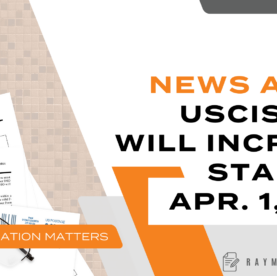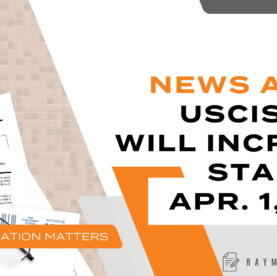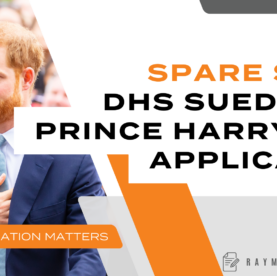Major Overhaul of H-1B Program Announced

Announced by the Department of Homeland Security (DHS) and the Department of Labor (DOL) announced major changes that will make it significantly tougher for employers to sponsor H-1B visas for qualified aliens. The changes require employers to pay significantly higher wages, narrow the types of degrees that can qualify an applicant, and shorten the length of visas for certain workers.
DHS and DOL Overhaul of H-1B Program
The new rules are to be implemented within 60 days of publication in the Federal Register. The United States Citizenship and Immigration Services (USCIS) is forgoing the regular notice and comment period to ensure that no American workers are harmed by foreign workers during the country’s COVID-19 economic crisis.
Ken Cuccinelli, Acting Director of the USCIS, has said he expects that under the new rules, about one-third of the visa applications will be rejected. Cuccinelli, along with Patrick Pizzella, Deputy Secretary of the Department of Labor, announced that the changes were necessary in order to protect American workers, whom the administration believes are threatened by foreign workers being paid lower wages to perform similar jobs. The new rules will directly affect foreign workers; as well as the employers, especially tech companies, that have employed many highly-skilled laborers.
What Is the H-1B Visa?
The government issues 85,000 H-1B visas each year. Employers sponsor highly-skilled aliens who are picked in a lottery process, as the number of applicants exceeds 85,000. The selected applicants are further scrutinized by the USCIS based on specialty occupation, the ability of the employer to pay the worker, and various other factors. After strict scrutiny, the USCIS approves or denies the visa. The employer can subsequently sponsor the foreign worker’s legal permanent residency (a green card) to enable them to remain permanently in the country.
What Are the Changes Announced?
Significant changes have been announced under the new rule.
- The definition of “Specialty Occupation” has changed. The new rule has narrowed the definition so that the alien worker’s bachelor’s or master’s degree must be specifically related to the Specialty Occupation that the worker is applying for. The sponsoring employer must also prove that the position for which they are hiring is directly related to the education degree.
- Proof of the employer-employee relationship with the H-1B visa applicant is now more stringent. The sponsoring employer must prove that he will control and evaluate the work done by the highly-skilled employee. The employer must also hire, pay, provide equipment for work, and claim the applicant as an employee for tax purposes. Also, the work performed should be in line with the job the worker was hired for.
- Employers will have to provide additional evidence to prove an employer-employee relationship at a third-party worksite.
- H-1B validity for third-party placements will be extended in increments of one year.
- The USCIS will be required to provide explanations for approving a shorter-period extension when an extension of longer duration was applied for.
- Itinerary requirements such as day-to-day work activities are no longer required by the DHS.
- • New rules have been set for site visits, inspections evaluations, and verifications. Inspections can be done through on-site visits, electronically, or by telephone. These verifications can be done before or after the H-1B is approved. If the DHS is unable to verify the specifics for any reason, the USCIS can revoke the H-1B petition, and in some cases can revoke an already-approved petition.
The new rules are expected to have a major impact on employers hiring foreign workers. Immigration specialists expect a flood of litigation challenging the new rules, especially because the USCIS chose to forgo the public comment period before the changes were implemented.
To learn more about this blog post or if you have any other immigration concerns, please feel free to contact me at rglahoud@norris-law.com or (484) 544-0022. For other topics related to COVID-19, visit our Coronavirus Thought Leadership Connection.
The information contained in this post may not reflect the most current developments, as the subject matter is extremely fluid and constantly changing. Please continue to monitor this site for ongoing developments. Readers are also cautioned against taking any action based on information contained herein without first seeking advice from professional legal counsel.





